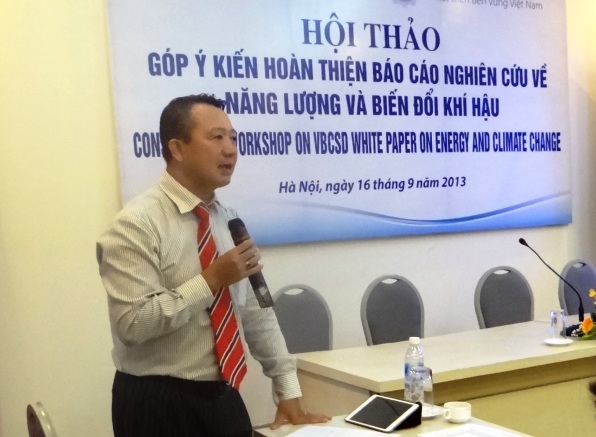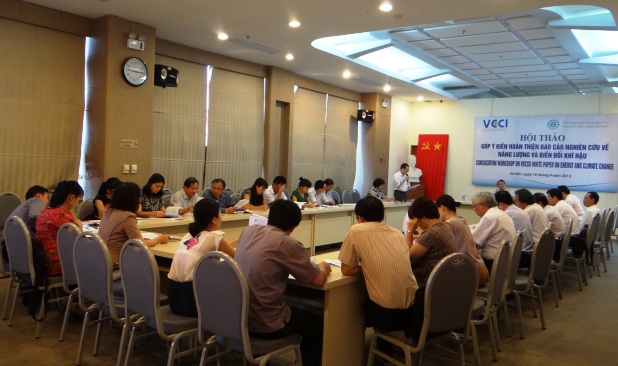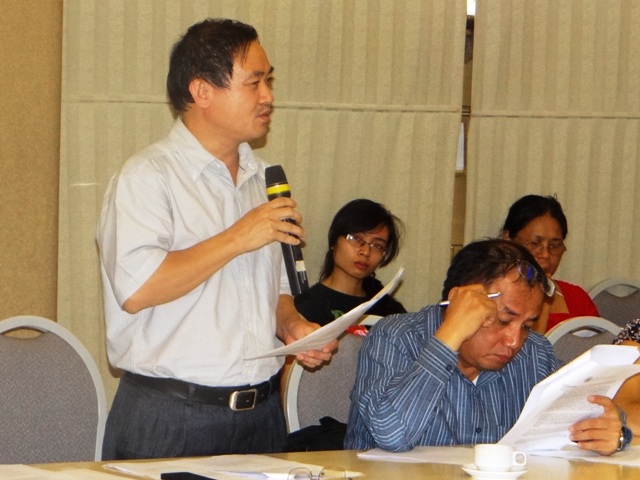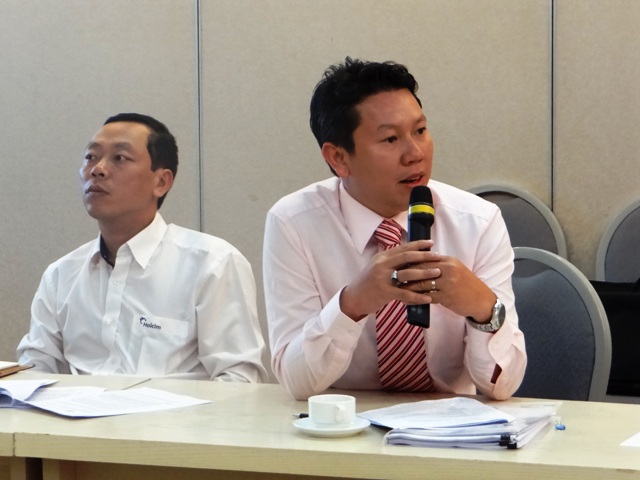The Vietnam Business Council for Sustainable Development (VBCSD) organised the Consultation Workshop on the White Paper on Energy and Climate Change in Hanoi on September 16, 2013. The workshop aims to complete the contents of the White Paper on Energy and Climate Change drafted by VBCSD.
Challenge in energy demand
In the "Vision 2050" for Sustainable Development, the World Business Council for Sustainable Development (WBCSD) has defined that the goal of reducing renewable energy costs and efficient use of energies is a “must-achieve” requirement in 2020.
According to reports released at the workshop, Vietnam’s energy demand is forecast to nearly double the current consumption by 2030. Vietnam will face with severe energy shortage. It will lack essential energies to supply 9 billion kWh of electricity in 2015, 35 - 64 billion kWh in 2020 and 59-192 billion kWh in 2030. In 2030, Vietnam has to import coal for thermal electricity to offset 20 percent short supply, or 110 million tonnes, 25 percent of oil, 3 percent of natural gas, and 2 percent of electricity due to its high vulnerability to water shortage.

Placing an emphasis on business roles in efficient use of energy and reduced impacts on climate change, Mr Nguyen Quang Vinh, Director of the Office for Business Sustainable Development (SD4B) under the Vietnam Chamber of Commerce and Industry (VCCI) and General Secretary of VBCSD, affirmed, sustainable development in any country can only be achieved when there is active participation of three stakeholders: Businesses, government and civil society. The VBCSD’s Report on Energy Efficiency and Climate Change Mitigation in Vietnam proposes a series of related policy recommendations to materialise the "Vision 2050" for Vietnamese businesses regarding the above issues.
Practical recommendations
The report recommended the White Paper on Energy and Climate Change drafted by VBCSD in 2012. The Working Group on Energy and Climate Change under VBCSD developed the White Paper on Energy and Climate Change based on discussions and research results on energy usage in cement, steel and paper sectors performed by VBCSD in collaboration with Institute of Energy. The White Paper was presented at the meeting with Deputy Prime Minister and Chairman of the National Council on Sustainable Development and Competitiveness Improvement, Nguyen Thien Nhan, on January 15, 2013. At the leadership of the Deputy Prime Minister, VBCSD collected comments from 13 relevant ministries and agencies.
The report set forth many important recommendations to direct and encourage enterprises to use energy efficiently and reduce climate change impacts.
The report recommends the Government improve energy efficiency at business environment by means of strengthening legal system, tightening new investment approval process, accepting only investment projects using most advanced and technologies and having energy-efficient benefits (using 10 percent less energy than current domestic standards and meeting international standards), and making annual assessments on minimum technology standards.
In addition, the Government needs specific energy monitoring plans and encourages businesses to announce annual energy efficiency programmes plus detailed activities to achieve and exceed energy consumption standards of the industry. The Government should also encourage power self-supply initiatives (making use of waste heat, wind energy, solar energy, waste, etc.) by offering tax incentives and attractive renewable electricity prices.
The workshop collected a lot of comments. A representative from the Ministry of Natural Resources and Environment said that there is a need to add analysis and assessment on impacts of climate change in the energy sector in Vietnam and proposed solutions to cope with. Vietnam also needs to grasp international support for finance, technology and capacity building.
According to the Ministry of Science and Technology, to successfully implement the National Strategy on Green Growth (Decision 1393/QD-TTG), the Ministry of Industry and Trade and the Government should urgently complete the Law on New Energy and Renewable Energy. The ministry also proposes the Vietnam Chamber of Commerce and Industry (VCCI) to form the Renewable Energy Business Association in the future to encourage businesses to better use energy and reduce climate change impacts.
According to participants, it is important that the private sector should be fully involve and committed to national goals.
Source: Vietnam Business Forum Magazine






